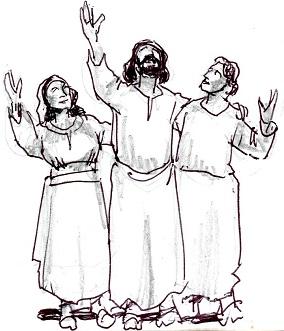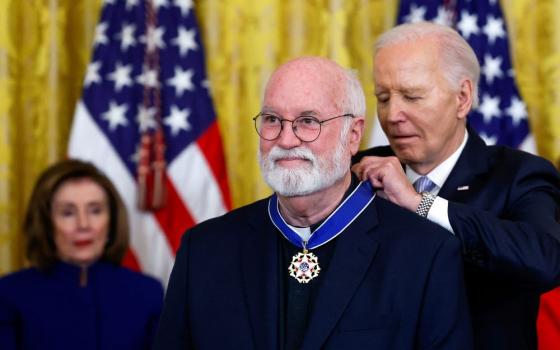
“This is how you are to pray” (Luke 6:9).
A serious scholar of religion, in the freedom of his retirement, was trying to find a path to the mystery at the heart of the human quest for meaning. He tried to distinguish what is original from later developments, cutting through the layers of reflection that produced theology and then doctrine, hoping to discover God. His was an approach typical of the search for the historical Jesus behind and beneath the development of the Christ of faith and the organized church.
Whether this is achievable or not - and faith requires accepting the whole continuum - this original inspiration remains the profound goal we all hope to experience for ourselves. Faith begins with the deepest longing of the human heart. We seek the very source of our existence. We want to know who created us. We cry out: “Whoever you are, I want to know you, my God.”
This intimate connection was for Jesus the heart of the “Our Father.” The prayer he taught his disciples was first his own inner conversation with his Abba. And before that, going back to his childhood, it was the most familiar prayer of all, the Sh’ma, said daily by all Jews: "Hear, O Israel! The Lord our God is Lord alone! You shall love the Lord your God with all your heart, with all your mind, with all your soul and all your strength" (Deut 6:4 ff). And to this was commonly added, “Love your neighbor as yourself” (Lev 19:18).
We see in the Our Father the same essential focus on God and, from that, on self and neighbor. Jesus gave his disciples his own deep practice of the Sh’ma. “This is how to pray. Stand with me in this absolute nexus of relationships between God, you and neighbor. Then listen. Live in this prayer and everything else will take care of itself. Obey this and you will obey the entire Law and the Prophets."
His approach was not unique. In another Gospel account (Mark 12:28-34), a scribe asked Jesus which is the first of all the commandments. When Jesus recited the Sh’ma, the scribe could not resist repeating the prayer, and the two of them engaged in a kind of dueling recitation that moved them both deeply. The scribe tells Jesus, “This is worth more than all burnt offerings and sacrifices.” Jesus praises the scribe: “You are not far from the kingdom of God.” It is one of the most joyful scenes in the Gospels.
Jesus was attuned to this prayer. God had given him an open ear (Psalm 40:6). He was constantly listening to the hum of relationships flowing in and out of God, the source and destination of all reality. Everything Jesus said and did during his life – including the crises he provoked with institutional religion and civil authority, his immersion in the liturgical life of his Jewish faith, his decision to identify with the poor and the outcasts, his death as a pariah and his reappearance within history as messiah - all flowed from his fidelity to the Sh’ma.
This prayer, echoing like music in the Our Father, is the most important commandment. If you dare, go stand close to Jesus, your Jewish brother, pray as he prays, then see what happens to you.











